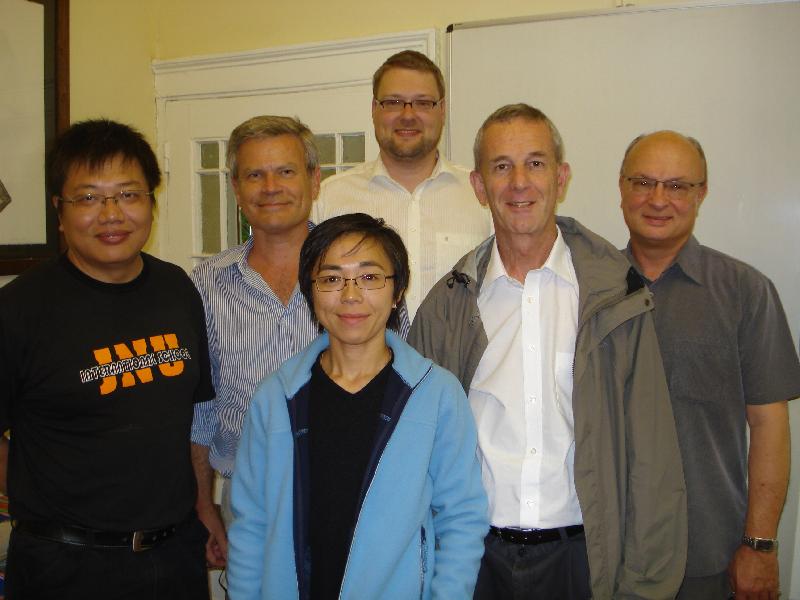
Dr Sven Grimm, Director of the Centre for Chinese Studies at the University of Stellenbosch, was at Rhodes last week to deliver an address entitled Coordinating China? Challenges to aid management in Africa.
A political scientist who has worked on external partners’ cooperation with Africa since 1999, Dr Grimm presented the research findings of a study conducted into the level and degree of Chinese aid in Rwanda. “We chose Rwanda because it is one of the least developed countries in Africa and it is highly aid dependent. It is a donor darling country, receiving foreign aid from 29 countries, it has little or no natural resources and has a development-oriented regime,” Dr Grimm said.
The research, which was funded by the German Aid Administration, involved three months of research in Rwanda, with six German researchers and numerous Chinese assistants. A total of 75 interviews were conducted, with what Dr Grimm described as “key actors in administration, diplomats, local government officials and donors”.
“The Chinese don’t generally use the term ‘aid’, which is interesting. They rather refer to it as ‘economic cooperation’ and ‘win-win situations’. We struggled with terminology to begin with but in time we settled into a system of understanding,” he said.
Dr Grimm, who has studied in Hamburg, Ghana and Senegal and holds a PhD from Hamburg, said that the study did find Chinese engagement in Rwanda that does qualify as Western aid in four sectors, including agriculture, health, education and infrastructure.
In terms of agriculture, the Chinese have financed the setting up of an agricultural demonstration centre as well as joint agricultural projects. Health wise, teams of Chinese doctors have resided in Kibungu since the 1980s and a hospital aimed at malaria research has also been set up.
In terms of education, there has been Chinese involvement in the erection of two schools and the funding of numerous scholarships, while in terms of infrastructure there have been concessional loans for road maintenance in Kigali, which Dr Grimm described as “unusual because aid donors don’t normally want to fund Kigali because they believe it is already well-developed and they would rather plough their aid into other less developed areas”.
“What is interesting is to see how Rwanda views this kind of Chinese engagement, and after conducting the study an interesting picture emerges. We see mixed signals coming from the Rwandan government, in that they accept the aid but they also set quite strict regulations. This is a risky strategy for the Rwandan government because obviously China is a big player. Pushing and pulling could lead to other Western governments questioning the feasibility of getting involved with a country like Rwanda,” he said.
Dr Grimm said that while China operates on a basis of non-interference, this only goes so far. “The Chinese send what they can and expect Rwanda to accommodate it. Instead of developing long-term strategies to uplift certain sectors they enforce what they have to offer,” Dr Grimm said. “I’m not saying that building schools in Africa is not a good thing, but it’s often not in line with the exact needs of the government,” he said. Also, Dr Grimm said that as more and more investment is made in a foreign country, so China’s requirements will become more and more stringent.
Dr Grimm has previously worked with the London-based Overseas Development Institute (ODI) and the German Development Institute/Deutsches Institut fuer Entwicklungspolitik (DIE) in Bonn/Germany. His research interests include the comparative perspective on external partners in Africa; Chinese development cooperation with Africa; European Africa policy; African perspectives on development and discussions around trilateral cooperation between Europe, China and African states.
By Sarah-Jane Bradfield
Photo: Prof Ma Yue of the Confucius Institute at Rhodes, Marius Vermaak, Director of the Confucius Institute, Tu Huyn, post doc student in sociology at Rhodes, Dr Sven Grimm, Chris de Wet and Prof Paul Bischoff of the Politics Department.
